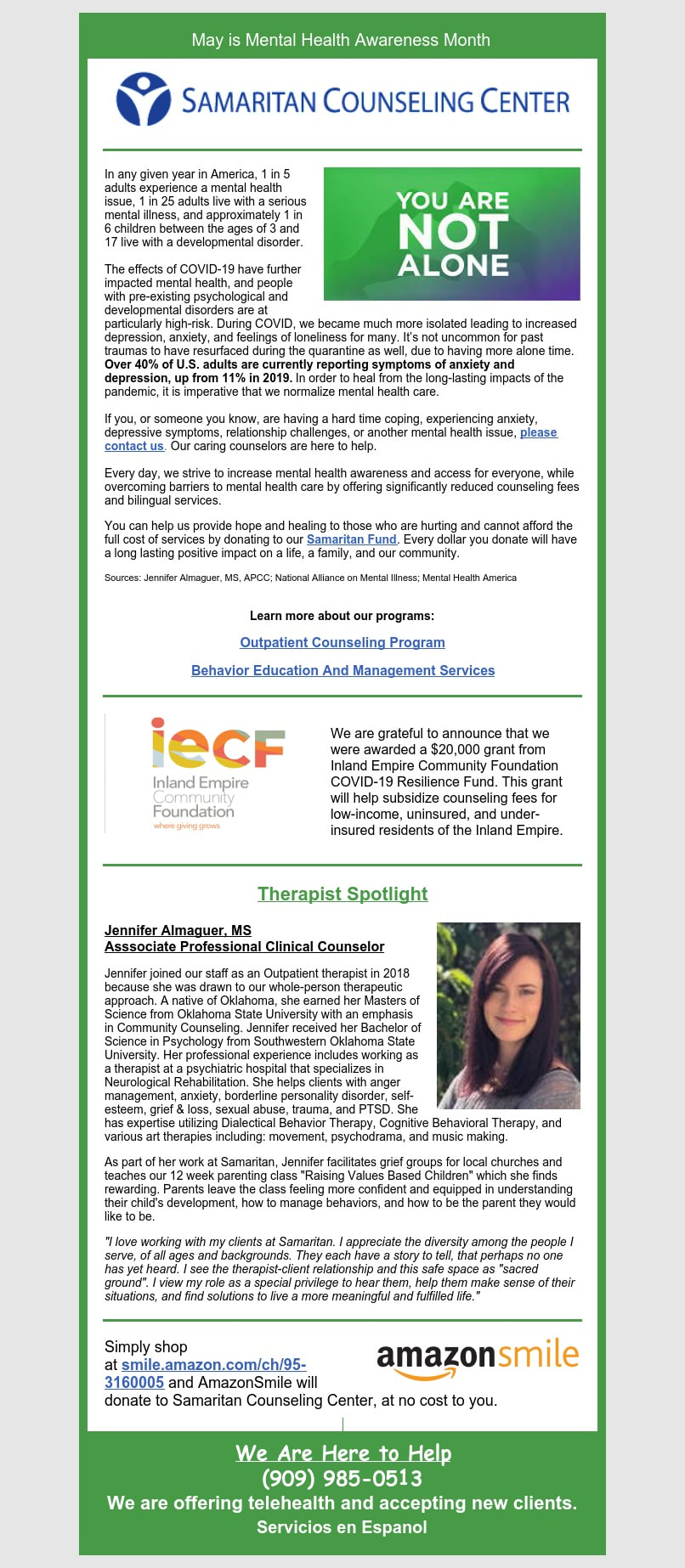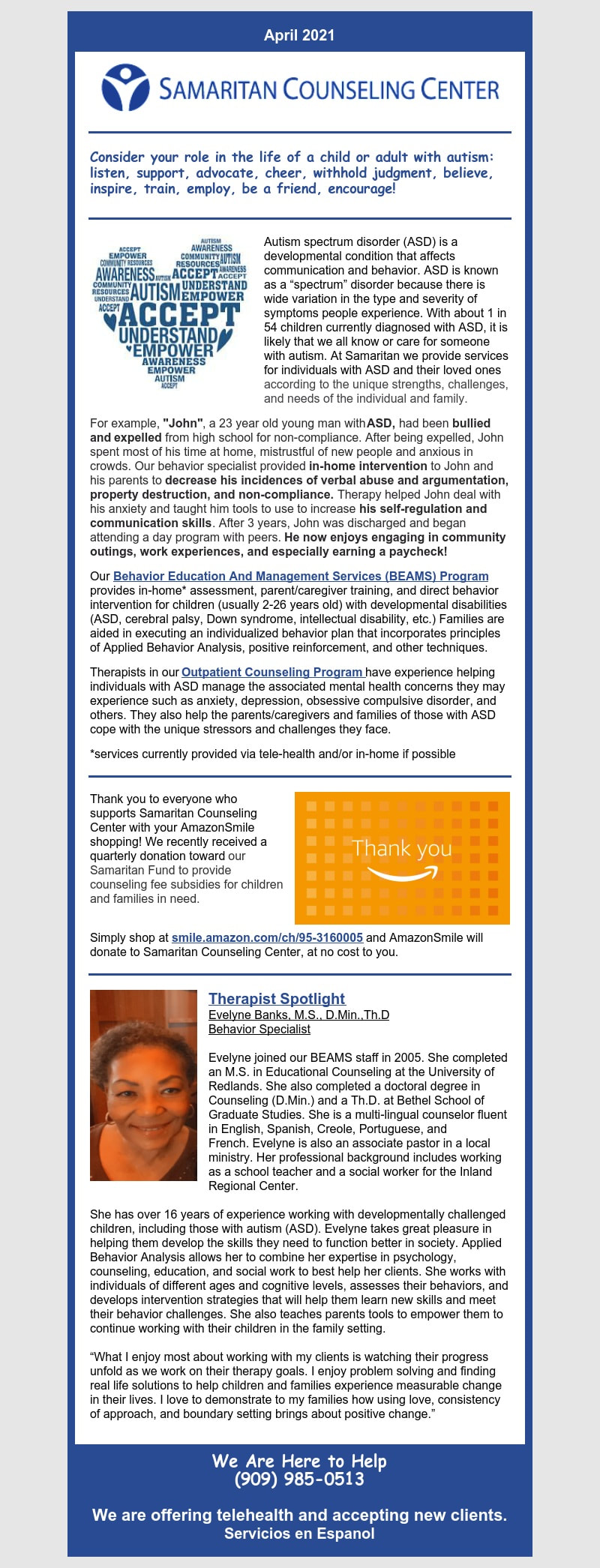Circumstances that protect against suicide risk:
Individual Protective Factors:
- Effective coping and problem-solving skills
- Reasons for living (for example, family, friends, pets, etc.)
- Strong sense of cultural identity
- Support from partners, friends, and family
- Feeling connected to others
- Feeling connected to school, community, and other social institutions
- Availability of consistent and high quality physical and mental/behavioral healthcare
Suicide is preventable. You can help someone you know!
- Express care and listen without judgment.
- Ask directly if this person is contemplating suicide.
- Call a Mental Health Professional, the National Suicide Prevention Lifeline (800-273-TALK) or the Community Crisis Response Team (909-458-1517).
Sources: CDC, Western Michigan University wmich.edu


 RSS Feed
RSS Feed